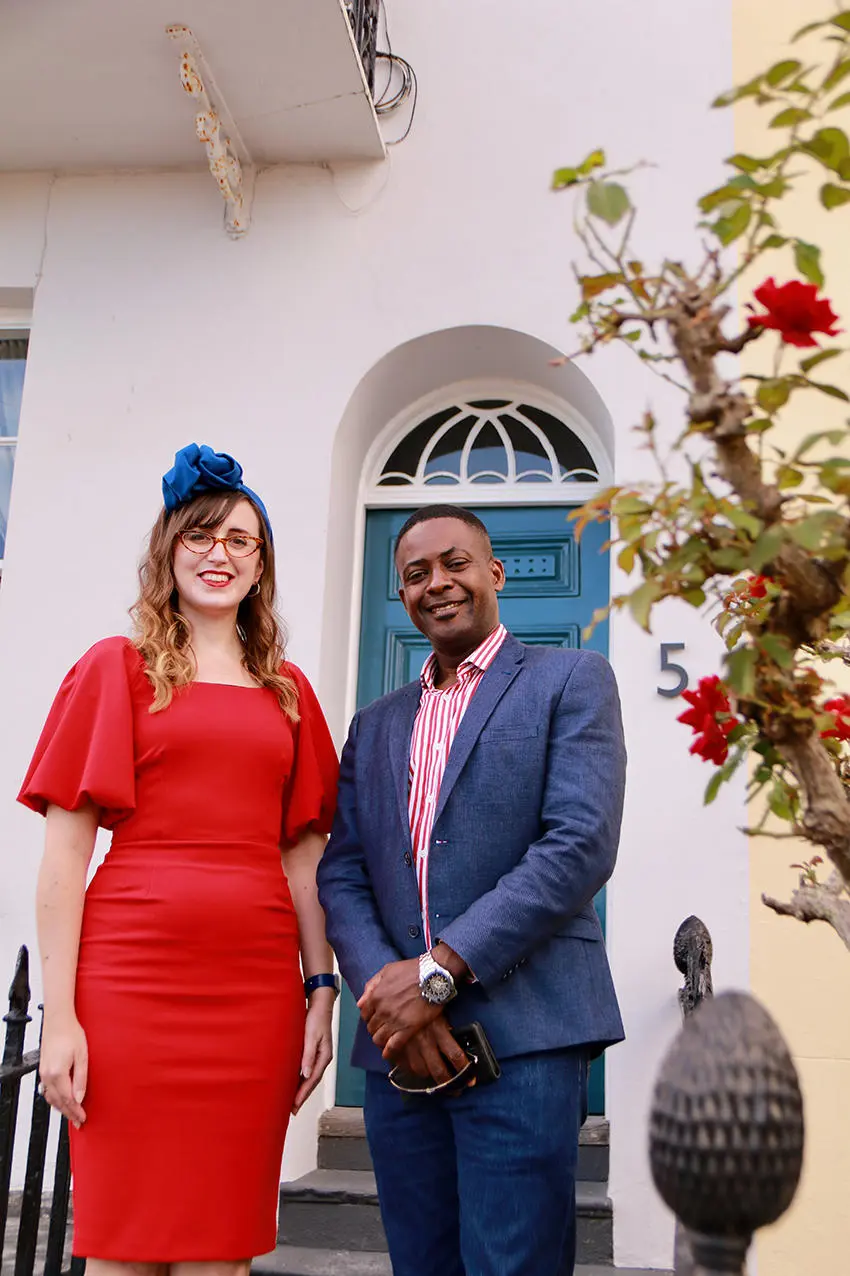Dr Nicole Willson releases film about the exiled journey of the first and last Queen of Haiti
A researcher from the University of Central Lancashire (UCLan) has released a documentary tracing the exile journey of the first and last Queen of Haiti.
Dr Nicole Willson has produced a film, in collaboration with the Haitian Chamber of Commerce in Great Britain, which highlights the locations Marie-Louise Christophe and her two daughters lived in Britain from 1821 to 1824.
The film, which journeys across various sites in the UK, including Blackheath, Hastings and London, uses research unearthed by Dr Willson in 2019.
The Leverhulme Trust Early Career Fellow, based in UCLan’s Institute for Black Atlantic Research, discovered a translation of Marie-Louise’s last will and testament in the UK National Archives. Since this important discovery, she has unearthed a number of interesting facts about the life of the Haitian queen in exile.
This documentary, released on 1 January to coincide with Haitian Independence Day, sheds light on some of these exciting finds.
Marie-Louise was wife and consort to Henry Christophe, the revolutionary general that contributed vitally to the struggle that brought an end to French colonial rule in Haiti in 1803.
In 1804, Haiti became the first independent and sovereign Black state. After the 1806 assassination of Jean-Jacques Dessalines, Haiti’s first leader, a scission emerged between rival groups in the North and South and governance of Haiti was split along these lines. Christophe became leader of the new ’State of Haiti’ in the North and Alexandre Pétion became the elected President of the Republic of Haiti in the South.
"Marie-Louise’s story is, above anything else, a story of survival and endurance. While other Haitian regimes rose and fell before and after her reign, she outlived them all."
— UCLan's Dr Nicole Willson, Leverhulme Trust Early Career Fellow
In 1811, Christophe established the Kingdom of Hayti and he and his wife Marie-Louise reigned as King and Queen for more than nine years, until October 1820 when, growing increasingly unpopular and fearing an impending coup, he took his own life.
Rebel forces executed his sons and sole surviving heirs but his wife, Marie-Louise, and their two daughters, Françoise Améthisse and Anne Athénaïre, were spared the same fate. One year later, they travelled to England, where they lived for several years before retiring to the continent. Though both her daughters died before her, Marie-Louise lived for another 30 years and died in Pisa in 1851.
Dr Willson says: “Marie-Louise’s story is, above anything else, a story of survival and endurance. While other Haitian regimes rose and fell before and after her reign, she outlived them all. And so, more than anyone else, she lived by the motto of the Haitian Kingdom, ‘Je Renais de Mes Cendres’ - I am reborn from my ashes.”
The documentary shines a spotlight on the interesting life of a woman that history has consigned to the margins and reflects on the important historical connections between Haiti and the UK. Perhaps most importantly, it enriches the understanding of the Black communities who contributed so significantly to the cultural landscape of Georgian Britain.
Wilford Marous, President of the Haitian Chamber of Commerce, added: “It’s been a very, very interesting journey and I’m very proud, as a Haitian, to step back into her shoes to see where she’s been around the UK, and also to live it. The feeling I had when I went into the house where she was living was something exceptional, unbelievable.”
The film is available to watch on YouTube.

